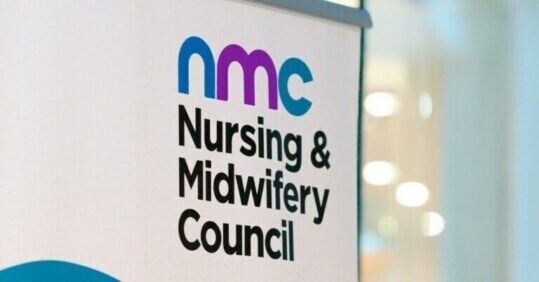NMC council approves new whistleblowing policy for the regulator

The Nursing and Midwifery Council’s (NMC) governing council has voted to approve a new policy for whistleblowing and raising concerns at the organisation.
In a meeting today, council members voted to introduce a new ‘Raising Concerns Policy (including Whistleblowing (public interest disclosures))’ to empower staff to raise concerns at the regulator.
The policy, previously called the whistleblowing policy, includes steps to improve signposting of Freedom to Speak Up Guardians and to better inform colleagues on how to raise concerns, with advice being tailored dependent on factors including individual’s seniority within the regulator.
Alice Hilken, general counsel at the NMC, described the policy as a ‘triage process’ to identify public interest concerns and any protections needed for individuals speaking up.
Related Article: Applications to study nursing in England at ‘new low’
‘This [policy] is a way of empowering colleagues to raise concerns and removing barriers to doing so, but it also enables us to deal with concerns proportionately and properly to resolve concerns locally, wherever possible, but critically so that we can gather and assimilate learning and take it forward wherever possible,’ Ms Hilken said.
It also sees the NMC broaden its policy from ‘whistleblowing’ to ‘raising concerns’, in an effort to remove barriers to speaking up at the regulator, such as when individuals are unclear whether their actions meet the criteria for ‘whistleblowing’, according to Ms Hilken.
Following council’s approval, the policy will now include a section on why raising concerns is important to the NMC and explains that individuals raising concerns can be accompanied by someone who can support them.
The NMC first announced plans to review its whistleblowing policy following the Independent Culture Review last year, which was conducted after disclosures by a whistleblower to The Independent online newspaper in 2023.
The newspaper reported that nurses and midwives accused of serious sexual, physical and racial abuse had been allowed to keep working as whistleblowers were ‘being ignored’ by the regulator.
The subsequent review, conducted by Nazir Afzal and Rise Associates and published in July 2024, identified a ‘dangerously toxic culture’ where bullying, racism and burnout were putting nurses and the public at risk.
Related Article: Paul Rees appointed as permanent NMC chief executive and registrar
The new policy was scheduled to be reviewed after the long-awaited Ijeoma Omambala KC review into fitness to practice (FtP) and whistleblowing at the regulator had been finalised, but last week the NMC announced that the two independent investigations Ms Omambala was leading would not be delivered due to ‘personal reasons’.
It has been developed with advice from experts including Lucy McLynn, partner at Bates Wells Chambers and chair of the whistleblowing charity Protect.
Ms McLynn has also been chosen to lead the re-commissioned review into whistleblowing at the NMC, while Victoria Butler-Cole KC and David Hopkins from 39 Essex Chambers will be leading the new FtP report.
Retired judge and NMC independent advisor, Peter Herbert, said wider support is also needed to help those who want to have ‘tricky conversations’ that do not meet the legal threshold for whistleblowing at work.
Related Article: NMC seeks nursing leader to oversee Code and revalidation reviews
‘I think there is still an opportunity for us to think about the very small percentage of people who may well remain unhappy, and how we consider some other ways to help find some peaceful resolution, which I hope will mean that we won’t have to trigger this sort of policy in these sorts of areas,’ he said.
Mr Herbert added that any communication around whistleblowing must be delivered in a ‘clear’ and ‘very readable’ format which is accessible for all staff wishing to raise concerns.

See how our symptom tool can help you make better sense of patient presentations
Click here to search a symptom

